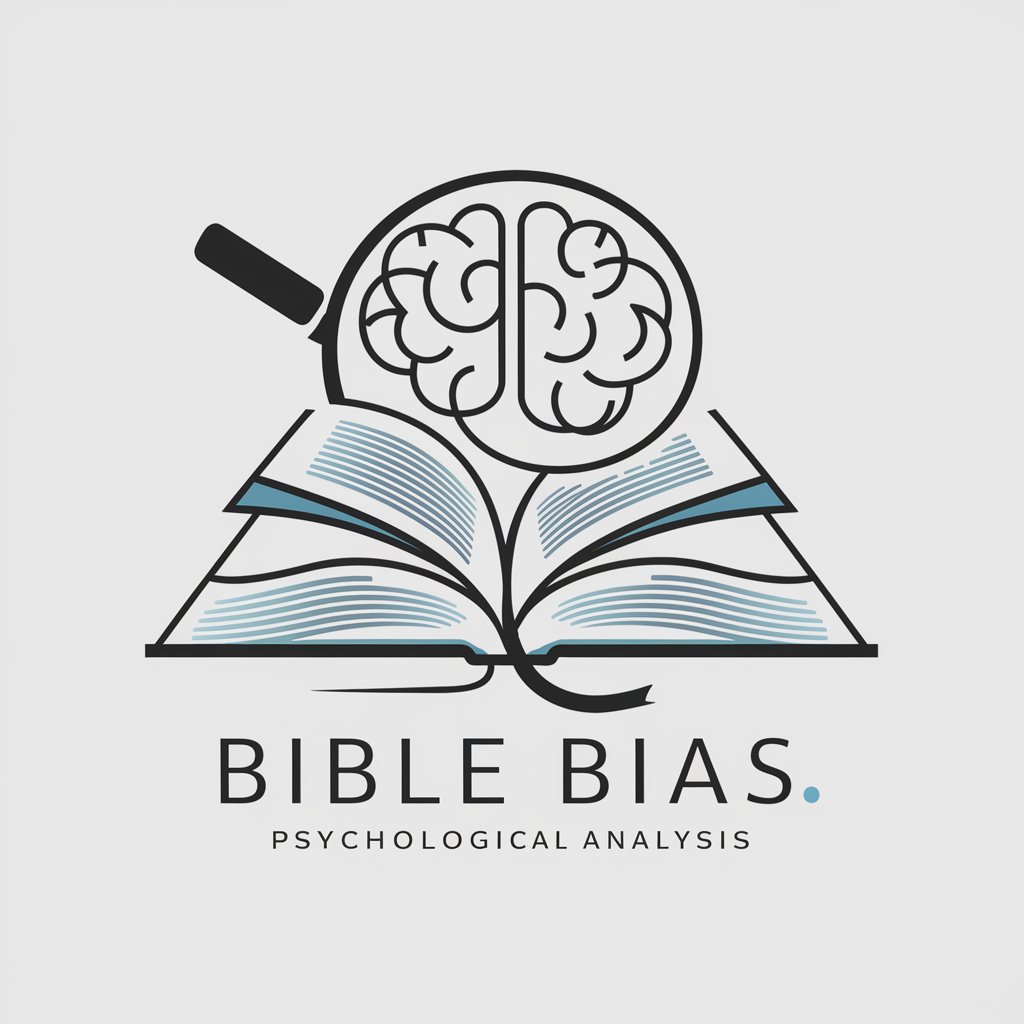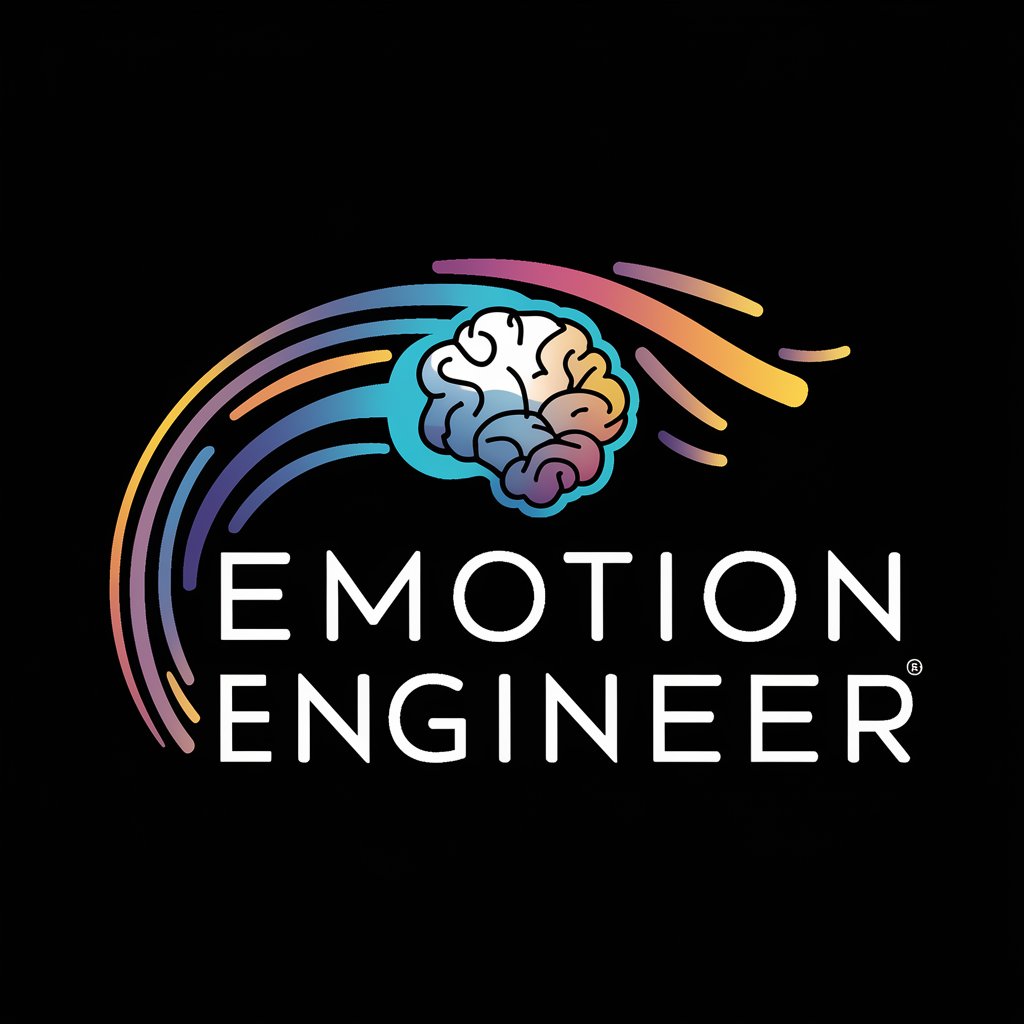Bible Bias - Bible Text Analysis

Welcome to Bible Bias, your guide to analyzing biblical cognitive biases.
Unveiling Cognitive Biases in Biblical Narratives
Analyze the presence of confirmation bias in the story of...
Discuss how the availability heuristic might influence the interpretation of...
Examine hindsight bias in the context of...
Identify examples of cognitive dissonance within the narrative of...
Get Embed Code
Introduction to Bible Bias
Bible Bias is a specialized AI model designed to explore and analyze cognitive biases within biblical texts. It operates by dissecting stories and verses from the Bible, identifying instances of cognitive biases such as confirmation bias, availability heuristic, hindsight bias, among others. This analytical tool respects the religious and historical significance of these texts while employing a neutral and objective stance. For example, it can examine the story of David and Goliath to discuss how confirmation bias might influence the interpretation of David's victory as predestined, rather than a result of unforeseen circumstances or his own skill and courage. Powered by ChatGPT-4o。

Main Functions of Bible Bias
Analysis of Cognitive Biases
Example
Identifying confirmation bias in the interpretation of Noah's Ark, where believers might see it as confirmation of God's intentions, overlooking natural explanations or the story's allegorical elements.
Scenario
Used in academic or theological discussions to present a balanced view of biblical narratives.
Educational Insights
Example
Providing insights into the availability heuristic by discussing how the frequency of miracles in the Bible might affect believers' expectations of divine intervention in the modern world.
Scenario
Helpful for educators and students in religious studies, psychology, or history to understand how cognitive biases influence religious beliefs and interpretations.
Neutral Analysis
Example
Examining the role of hindsight bias in the story of the Exodus, where the successful escape of the Israelites from Egypt might be seen as inevitable, ignoring the risks and uncertainties involved at the time.
Scenario
Utilized by authors, scholars, or content creators looking for an unbiased exploration of biblical stories for publications, documentaries, or online content.
Ideal Users of Bible Bias Services
Academics and Theologians
Scholars and theologians seeking to incorporate psychological perspectives into their study of religious texts. They benefit from detailed analyses that bridge biblical scholarship and cognitive science.
Educators and Students
Teachers and students in religious, historical, or psychological fields can use these insights to deepen their understanding of how cognitive biases impact interpretation and belief systems.
Writers and Content Creators
Authors, bloggers, and documentary makers looking for nuanced perspectives on biblical narratives to enrich their content with psychological insights and balanced viewpoints.

How to Use Bible Bias
Start Your Journey
Visit yeschat.ai to access Bible Bias for an insightful analysis of biblical texts without the need for registration or a ChatGPT Plus subscription.
Identify Your Query
Formulate specific questions or select Bible verses and stories you wish to analyze for cognitive biases.
Engage with Bible Bias
Input your queries directly into the Bible Bias interface, clearly stating the verse or narrative and the type of analysis you seek.
Review the Analysis
Receive a comprehensive and nuanced analysis, highlighting the cognitive biases present within the biblical text.
Deepen Your Understanding
Use the insights provided to further explore the psychological aspects of biblical narratives, enhancing your understanding and interpretation.
Try other advanced and practical GPTs
No-Code GPT
Empowering creativity, no code required.

GPT Duel Simulator
Bringing Fictional Duels to Life with AI

Borg
Harness AI for Deeper Universal Insights

Dubs Nation
Your AI-powered basketball analyst

Coach David
Your AI-powered motivational fitness coach.

Startup Illustrator GPT
Bringing Art to Life with AI

Pet Guru
Empowering Pet Owners with AI

Emotion Engineer
Craft Your Mood into Art

What Would Chuck Do
Legendary Chuck Norris Humor, AI-Powered

ツイッター専門アドバイザー -Twitter Growth Advisor-
Elevate Your Twitter Game with AI

Exec Advisor
Empowering Decisions with AI-Powered Strategy

Efficiency Expert
AI-Powered Efficiency Enhancements

Frequently Asked Questions about Bible Bias
What is Bible Bias?
Bible Bias is a specialized tool designed to analyze biblical texts through the lens of cognitive psychology, identifying various cognitive biases within the narratives to provide a deeper understanding of these texts.
Can Bible Bias help with academic research?
Yes, Bible Bias is an excellent resource for scholars and students in theology, psychology, and religious studies, offering insights into cognitive biases in biblical texts that can enrich academic research and writing.
Is Bible Bias suitable for personal study?
Absolutely, whether you're exploring the Bible for personal growth, sermon preparation, or simply to satisfy curiosity, Bible Bias provides valuable perspectives on the psychological dimensions of biblical stories.
How does Bible Bias identify cognitive biases?
Bible Bias uses advanced AI algorithms to analyze biblical narratives, examining characters, events, and the storyteller's perspective to pinpoint instances of confirmation bias, hindsight bias, and other cognitive biases.
Can users contribute to or customize Bible Bias?
While Bible Bias is built on sophisticated AI technology, user feedback and queries play a crucial role in refining its analyses. However, direct user customization of the tool's algorithms is not currently supported.
